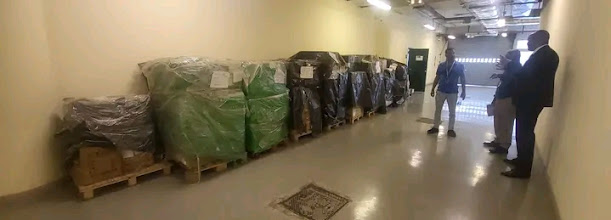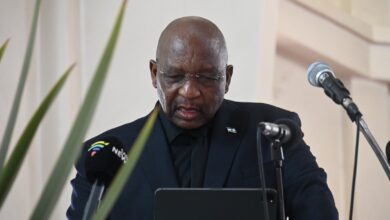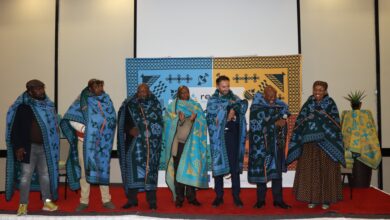Lesotho Receives 2,000 Tablets from UNECA to Support Civil Registration Reform

In a significant development aimed at enhancing the country’s civil registration and vital statistics system, the United Nations Economic Commission for Africa (UNECA), based in Addis Ababa, has officially handed over 2,000 tablets to the Embassy of the Kingdom of Lesotho to the Federal Democratic Republic of Ethiopia. This donation comes at the request of the Government of Lesotho, facilitated through the Ministry of Local Government, Chieftainship, Home Affairs, and Police.
Dr. ‘Mamphaka Mabesa, the Principal Secretary of the Ministry of Local Government, Chieftainship, Home Affairs, and Police, explained that the tablets are part of efforts to reform and enhance the Accelerated Improvement of Civil Registration and Vital Statistics (CRVS) Project. This initiative is vital for ensuring that the country’s civil registration processes are modernized, efficient, and accessible, ultimately improving the nation’s vital statistics and supporting better governance.
The handover ceremony was attended by key figures, including Ms. Ntšiuoa Sekete, the Permanent Representative of Lesotho to the Economic Commission for Africa (ECA). On behalf of the Government of Lesotho, Ms. Sekete expressed heartfelt gratitude to the UNECA for the generous contribution, which she described as a “massive shot in the arm” for the country’s ongoing efforts to improve civil registration processes.
The CRVS Project, which officially began in 2022, initially deployed approximately 120 devices to support the registration of vital statistics. With the addition of the 2,000 tablets from UNECA, Ms. Sekete highlighted that the expanded equipment would significantly accelerate the project’s goals. She emphasized that these tablets would boost the efficiency of data collection, enable faster processing of registrations, and help complete the project in a timely manner, ultimately bringing much-needed benefits to the country’s administrative functions.
By modernizing the country’s civil registration system, Lesotho aims to ensure more accurate records of births, deaths, marriages, and other vital events. This data is crucial not only for governance and public policy but also for the country’s ability to deliver essential services to its citizens. The support from UNECA is a crucial step in strengthening the country’s infrastructure for civil registration and improving the overall development of Lesotho.
As the project progresses, the increased use of technology is expected to foster more inclusive and accessible services for all Basotho, allowing them to more easily access official records and supporting the government’s ongoing efforts to improve transparency and efficiency in public administration.
Join 'Lesotho News' WhatsApp Channel
Get breaking Lesotho news — delivered directly to your WhatsApp.
CLICK HERE TO JOIN



